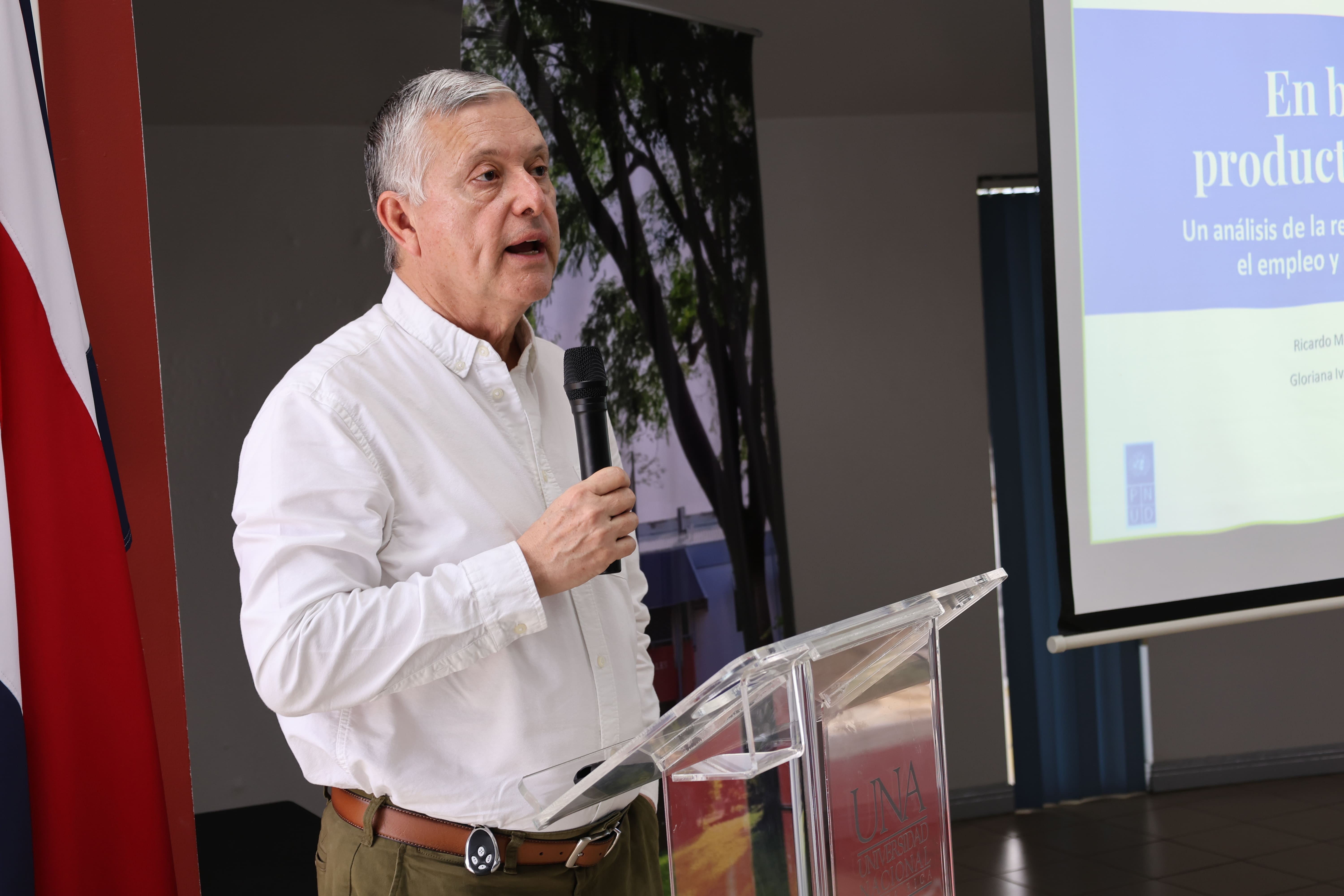
[ad_1]
San José, August 30 (Elpaís.cr) – Since 2005, Costa Rica has seen an increase in labor productivity in almost all economic activities; but since 2019, a gap has emerged between this increase and the actual wages received by workers. In other words, companies are growing and productivity is increasing, but the wages of those who work in them are stagnant.
At the invitation of the International Center for Economic Policy for Sustainable Development (Cinpe-UNA), Ricardo Monge, President of the Central American Academy of Sciences, gave the second opening lecture of the Doctoral Program in Economic Policy, “The Decoupling between Labor Productivity and Wages”, which is mainly due to the decline in the labor force participation rate.
This is happening in a country with an unemployment rate of 7.3%, a poverty rate of 21.8% and an inequality level of 0.50, despite the fact that between 2005 and 2019 the country achieved matching behavior between labor productivity and wages. However, starting from that year (before the pandemic), the gap started to widen.
While he recognizes that the covid-19 pandemic has had an impact on almost all sectors of the economy, the expert believes that it would be prudent to delve deeper to find out the reasons that explain the decoupling found and its exponential growth from 2019 to 2022, according to the study.
Another revelation is that the impact is not the same across different economic sectors. For example, since 2021, agriculture, animal husbandry, forestry and fisheries have reversed the trend of median real wages exceeding labor productivity.
These results are contained in the book In Search of Inclusive Productivity , written by Monge with Gloriana Ivankovich Escoto and co-authored by Silvia Lara Povedano and Josué Martínez Castillo.
In his speech, Ricardo Monge started from a basic argument: a country’s economic growth can come from increased productivity, and one of the reasons driving this growth is business innovation.
“When you increase productivity because you’re actively engaged in innovative problems, you have the advantage of not having diminishing returns, so you’re able to grow in a high and sustained way,” Monge said.
He cited the experience of Asian countries that went from middle-income to high-income in a short period of time. “The countries that made that leap did so because they significantly increased productivity, which is associated with greater innovation.”

Outstanding debt
The case of Costa Rica reflects what has been done well and the challenges that must be addressed, as does the relationship between labor productivity and median real wages.
Monge believes that if labor productivity remains at its current level (between 2% and 2.6%), the country will not be able to reach the growth levels of developed countries today even in the next 25 years.
“If I want to close this gap, then I need to grow at around 6%; that is, almost three times as fast as we are today. This is a huge effort, but some countries have already achieved it with the right public policies,” stressed Monge.
For example, by 2022, Costa Rica’s labor productivity will be three times lower than that of the United States and twice lower than the average of the Organization for Economic Cooperation and Development (OECD) countries. According to the Central Bank (BCCR), the country will only surpass Mexico.
The economist pointed out that while promoting innovation, it is also necessary to improve the efficiency of the allocation of economic resources and improve what he called “external factors”: the quality of talent, access to information and technology, productivity improvement, business environment and the renewal of the current institutional framework.
“It is necessary to encourage potential businesses and strengthen coordination between institutions. In Costa Rica, SMEs still have to go through different institutions, despite efforts such as the Procomer One-Stop Shop, but this only applies to export activities. I hope we can expand this window to SMEs,” Monge suggested.
For CINPE Director Marco Otoya, hosting the inaugural class brings closer to the mission of the PhD in Economic Policy, which focuses on research. “It is no coincidence that many of the students starting this semester will be involved in our different thematic cores in areas related to innovation, labour markets, sustainable development and public policy,” he adds.
[ad_2]
Source link


